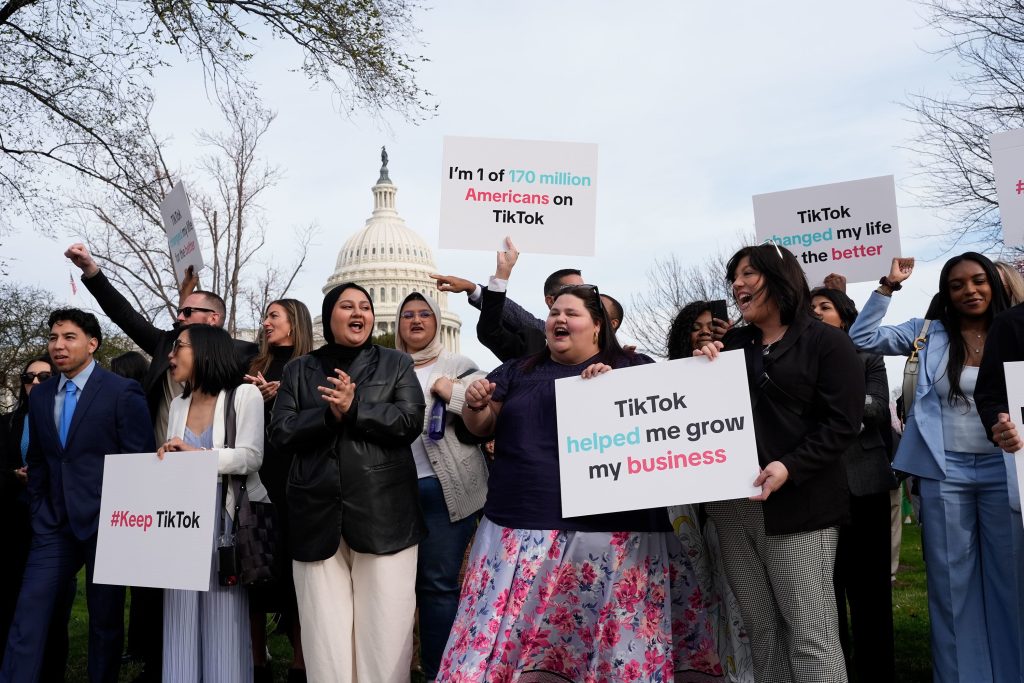
TikTok is currently challenging a new U.S. law that mandates its removal unless its Chinese parent company, ByteDance, sells it to a non-Chinese entity. With millions of global users, the video-sharing app has faced scrutiny over data security and its connections to the Chinese government.
Who is Pushing for a TikTok Ban and Why?
The drive to ban TikTok in the U.S. comes from lawmakers across both major political parties who are concerned about national security. They worry that the Chinese government could pressure ByteDance to hand over data on TikTok’s 170 million U.S. users. Although TikTok denies these allegations and asserts that it would not share U.S. user data with China, the concerns persist.
In April, following congressional approval, President Joe Biden signed a bill that could force TikTok’s sale. This legislation is not the first attempt to block the app; former President Donald Trump tried to ban TikTok in 2020, but his efforts were unsuccessful. Trump, now a Republican presidential candidate for 2024, has criticized the new legislation, suggesting it might unfairly benefit competitors like Facebook.
Vice President Kamala Harris, running against Trump as the Democratic candidate, has utilized TikTok and trendy social media content to connect with younger voters. Her campaign has expressed a preference for changing TikTok’s ownership rather than banning it outright.
When Could TikTok Be Banned?
Biden’s signing of the bill has set a timeline but not an immediate ban. ByteDance has nine months to sell TikTok, with an additional three-month grace period before any ban takes effect. This means TikTok could be forced to either sell or shut down in the U.S. by January 19, 2025, following the November 2024 presidential election.
However, TikTok’s legal challenge against the bill, which began in May, could delay this process for years.

How Would a TikTok Ban Be Implemented?
The most direct way to enforce a TikTok ban would be to remove the app from major app stores like Apple’s App Store and Google Play. This would prevent new users from downloading TikTok and stop current users from receiving updates. The bill also prohibits applications from adversarial countries from being updated or maintained in the U.S., granting the president broad powers to limit apps linked to nations like China, Russia, Iran, and North Korea.
What is TikTok’s Response to the Ban?
TikTok’s legal battle against the bill is set to begin in Washington, D.C., on September 16, with a three-judge panel overseeing the case. The company has labeled the legislation as an “unconstitutional ban” and a violation of free speech rights. TikTok CEO Shou Zi Chew has reassured users in a video, emphasizing their commitment to fight the ban and expressing concern that the legislation could bolster competitors and jeopardize American jobs. Additionally, ByteDance would need approval from Chinese officials to sell TikTok, and Beijing has signaled opposition to such a sale.
User Reactions to the Potential Ban
Many TikTok users and creators in the U.S. have voiced their opposition to the potential ban. Tiffany Yu, a disability advocate from Los Angeles, has argued that the platform is crucial for her advocacy work. In March 2024, TikTok encouraged its U.S. users to contact their representatives to oppose the bill. However, this campaign led to an influx of calls that some lawmakers interpreted as intensifying their concerns about the app, potentially reinforcing support for the legislation.
TikTok’s Status in Other Countries
The U.S. bill could inspire similar measures elsewhere. TikTok is already banned in India, which was once a major market for the app, and is also blocked in Iran, Nepal, Afghanistan, and Somalia. The U.K. government and the European Commission have prohibited TikTok on work devices due to security concerns, and the BBC has advised staff to remove the app from corporate phones.
How TikTok Operates and Data Collection
TikTok’s algorithm, which personalizes content for users, is central to its functionality. The app features three main feeds: Following, Friends, and For You. While the Following and Friends feeds show content from chosen connections, the For You feed is algorithmically generated based on user interactions. Critics argue that TikTok collects extensive data, including location, device information, and user behavior, which is used to fuel its personalized recommendations. Despite these concerns, other popular social media platforms also collect similar types of data.
As TikTok navigates this legal and political landscape, the outcome of the ongoing court battles and legislative decisions will be pivotal in determining its future in the U.S.








